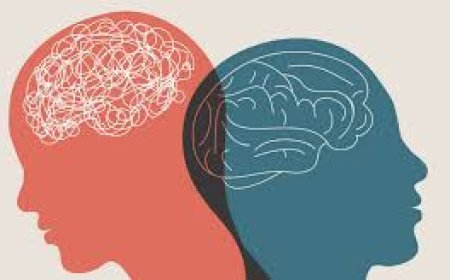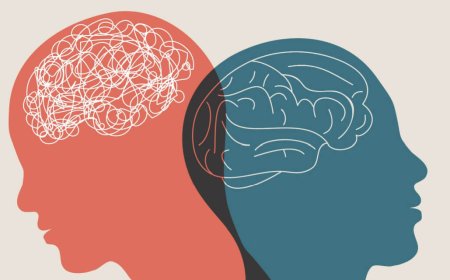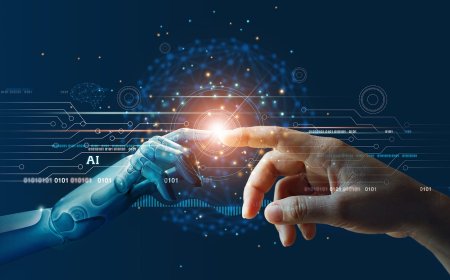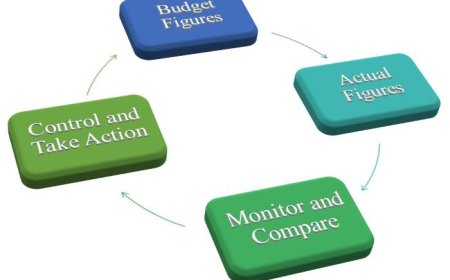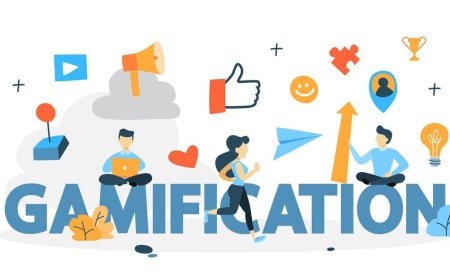Social-Emotional Learning and Soft Skills: Building a Foundation for Success
Explore the significance of social-emotional learning (SEL) and soft skills in education. Discover how they contribute to student success, mental health, and future career readiness.

Introduction
In an increasingly complex and rapidly changing world, the importance of social-emotional learning (SEL) and soft skills cannot be overstated. As educators aim to prepare students for future challenges, there is a growing acknowledgment that academic knowledge alone is insufficient. Social-emotional learning fosters essential personal attributes, including emotional intelligence, resilience, and interpersonal skills, which are vital for students' overall well-being and success. This essay delves into the significance of social-emotional learning and soft skills, examines their interconnection, and explores effective strategies for integrating them into educational curricula.
The landscape of education is evolving, and with it, the demands placed on students are becoming more multifaceted. Employers increasingly seek individuals who not only possess technical expertise but also demonstrate strong social skills, adaptability, and emotional awareness. In this context, SEL emerges as a crucial framework that equips students with the tools necessary to navigate interpersonal relationships and manage their emotions effectively. By cultivating emotional intelligence, students learn to recognize and understand their feelings, enabling them to respond to challenges with greater resilience and empathy.
The interconnection between SEL and soft skills is profound. Soft skills, often referred to as interpersonal or people skills, encompass a range of abilities such as communication, teamwork, and conflict resolution. These competencies are deeply rooted in social-emotional learning, as they require an awareness of self and others. For instance, effective communication involves not only the articulation of ideas but also active listening and the ability to read social cues. By integrating SEL into the curriculum, educators can create an environment that promotes collaboration and encourages students to practice these essential skills in real-world contexts.
To successfully embed SEL and soft skills into educational curricula, several strategies can be employed. First, educators can implement experiential learning opportunities, such as group projects and role-playing exercises, which allow students to practice and refine their interpersonal skills. Additionally, incorporating mindfulness practices into the classroom can enhance emotional regulation and self-awareness, fostering a supportive learning environment. Professional development for educators is also vital, as it equips them with the knowledge and tools necessary to effectively teach and model these competencies.
The integration of social-emotional learning and soft skills into educational curricula is essential for preparing students to thrive in a complex world. By prioritizing these elements, educators can cultivate a generation of individuals who are not only academically proficient but also emotionally intelligent and socially adept, ultimately leading to a more resilient and empathetic society.
Understanding Social-Emotional Learning (SEL)
Social-emotional learning (SEL) is an essential framework that guides individuals in navigating the complexities of their emotions and interactions with others. It encompasses a range of processes that foster emotional intelligence, resilience, and interpersonal skills, which are crucial for success in both academic and personal spheres. The Collaborative for Academic, Social, and Emotional Learning (CASEL) delineates five core competencies of SEL:
-
Self-Awareness: This foundational skill enables individuals to recognize their emotions, strengths, weaknesses, values, and needs. By fostering self-awareness, learners can better understand how their feelings influence their thoughts and actions, laying the groundwork for effective personal growth.
-
Self-Management: Building on self-awareness, self-management equips individuals with the tools to regulate their emotions, thoughts, and behaviors in various situations. This competency is vital for coping with stress, setting and achieving goals, and demonstrating resilience in the face of challenges.
-
Social Awareness: This competency emphasizes the importance of empathy and understanding social norms. By developing social awareness, individuals learn to appreciate diverse perspectives, fostering an inclusive environment where collaboration and mutual respect thrive.
-
Relationship Skills: Effective communication, teamwork, and conflict resolution are at the heart of building and maintaining healthy relationships. Mastery of relationship skills allows individuals to engage constructively with peers, resolve disagreements amicably, and cultivate supportive networks that enhance both personal and academic success.
-
Responsible Decision-Making: This competency involves making ethical and constructive choices regarding personal and social behavior. By integrating responsible decision-making into their lives, individuals become more adept at evaluating potential consequences and considering the welfare of themselves and others.
Integrating SEL into educational environments is crucial for developing these competencies in students. Research indicates that effective SEL programs not only enhance students' emotional intelligence but also lead to improved academic performance, better mental health outcomes, and increased engagement in school. As educators prioritize SEL, they create a holistic learning atmosphere that nurtures not only cognitive abilities but also emotional and social growth.
By embedding SEL principles into curricula, schools can equip students with the necessary skills to thrive in an increasingly complex world, fostering a generation of empathetic, resilient, and responsible individuals capable of navigating life's challenges with confidence and integrity.
The Importance of Soft Skills
Soft skills, often referred to as interpersonal or non-cognitive skills, encompass a range of abilities that enable individuals to effectively communicate, collaborate, and solve problems. In today's fast-paced and interconnected world, these skills have become indispensable in the workplace, where technical expertise alone is no longer sufficient for sustained success.
Key soft skills include:
-
Communication: The ability to convey information clearly and effectively is paramount in any professional setting. Strong communicators can articulate their thoughts, listen actively, and engage in meaningful dialogue, fostering an environment of transparency and trust. This skill not only enhances teamwork but also mitigates misunderstandings that can lead to conflicts.
-
Teamwork: Working well with others to achieve common goals is fundamental in collaborative projects. A team that values diverse perspectives and encourages open dialogue is more likely to innovate and excel. Effective team members understand the importance of their roles and contribute positively to group dynamics, ensuring that collective efforts lead to successful outcomes.
-
Adaptability: The capacity to adjust to new conditions and respond to changes is increasingly vital in a rapidly evolving business landscape. Professionals who demonstrate adaptability can pivot when faced with unexpected challenges, embracing new technologies and methodologies with ease. This resilience not only benefits individual career growth but also strengthens organizational agility.
-
Critical Thinking: The ability to analyze situations, evaluate information, and make informed decisions is crucial for navigating complex problems. Critical thinkers approach challenges with a logical mindset, considering various angles and potential outcomes before arriving at a conclusion. This skill empowers individuals to contribute to strategic planning and problem resolution effectively.
-
Problem-Solving: Approaching challenges with creativity and resilience is a hallmark of successful professionals. Those who excel in problem-solving can identify root causes, brainstorm innovative solutions, and implement them efficiently. This proactive approach not only enhances productivity but also fosters a culture of continuous improvement within organizations.
Soft skills are increasingly recognized as essential for success in the workplace, as they complement technical skills and enable individuals to navigate complex social dynamics effectively. Organizations that prioritize the development of soft skills in their workforce are better positioned to thrive in an ever-changing environment. By investing in these abilities, companies can cultivate a more engaged, adaptable, and innovative workforce, ultimately leading to enhanced performance and growth.
The Interconnection Between SEL and Soft Skills
Social-emotional learning (SEL) and soft skills are intricately intertwined, with SEL serving as the bedrock upon which essential soft skills are built. By fostering a comprehensive understanding of one's emotions, SEL cultivates a suite of competencies that are vital for success in both personal and professional realms.
Self-Awareness and Communication: The journey of effective communication begins with self-awareness. When individuals develop an understanding of their emotions, they gain the ability to articulate their feelings and needs more clearly. This clarity not only enhances interpersonal interactions but also fosters an environment where open dialogue is encouraged. In workplaces where communication is paramount, individuals who are self-aware can navigate conversations with greater ease, leading to stronger relationships and reduced misunderstandings.
Self-Management and Adaptability: In an ever-changing world, the ability to self-manage emotions and behaviors is crucial. SEL equips individuals with strategies to regulate their responses, thereby enhancing their adaptability. When faced with challenges, those who can maintain composure and flexibility are more likely to thrive. This adaptability is not merely a personal asset; it is a vital component of organizational resilience, enabling teams to pivot in response to unforeseen circumstances and innovate under pressure.
Social Awareness and Teamwork: Empathy, a core component of social awareness, plays a pivotal role in effective teamwork. Understanding social norms and recognizing the diverse perspectives of others fosters a collaborative spirit. In educational settings, students who practice empathy learn to appreciate differences, which translates into improved teamwork skills. In professional environments, this translates to enhanced collaboration, as team members are more likely to engage constructively and support one another in achieving common goals.
Relationship Skills and Problem-Solving: The ability to cultivate strong relationships is essential for effective problem-solving. SEL nurtures interpersonal skills, enabling individuals to collaborate seamlessly during challenging discussions. A team equipped with solid relationship skills can approach problems from various angles, promoting constructive dialogue and creative solutions. This collaborative problem-solving approach not only leads to better outcomes but also strengthens team cohesion.
By prioritizing the cultivation of social-emotional competencies, educators and leaders can equip students and employees alike with the soft skills necessary for personal growth and professional success. In a world that increasingly values emotional intelligence alongside technical expertise, the integration of SEL into educational curricula and workplace training programs is not just beneficial; it is imperative for fostering a generation of adaptable, empathetic, and skilled individuals ready to navigate the complexities of modern life.
Benefits of Social-Emotional Learning and Soft Skills
Academic Achievement: Research consistently demonstrates that students with robust social-emotional skills exhibit higher academic performance. Social-Emotional Learning (SEL) programs have been linked to enhanced test scores, elevated grade point averages, and overall success in school. By fostering a growth mindset and resilience, SEL empowers students to approach challenges with confidence, ultimately translating to improved academic outcomes.
Mental Health: The integration of SEL into educational settings plays a pivotal role in promoting better mental health among students. By equipping them with essential tools to manage stress, anxiety, and interpersonal conflicts, SEL fosters emotional awareness and regulation. Students learn to identify and articulate their emotions, communicate effectively, and seek support when necessary. This proactive approach not only mitigates mental health issues but also cultivates a culture of empathy and understanding within the classroom.
Career Success: As the job market evolves, employers increasingly prioritize soft skills during hiring and evaluation processes. Attributes such as collaboration, effective communication, and adaptability have become essential in today’s dynamic workforce. Students who engage in SEL and develop these soft skills are better prepared for job interviews, teamwork, and navigating workplace dynamics. By fostering a strong sense of emotional intelligence, these individuals are more likely to thrive in diverse professional environments.
Positive School Environment: The integration of SEL into curricula fosters a supportive and inclusive school culture, where students feel valued and respected. Positive relationships among peers and between students and teachers significantly contribute to a safer learning environment. Schools that prioritize SEL cultivate a sense of belonging, which not only enhances student engagement but also reduces instances of bullying and conflict. This nurturing atmosphere encourages students to express themselves freely, leading to greater academic and social success.
Lifelong Skills: The competencies developed through SEL and soft skills extend far beyond the classroom, contributing to lifelong personal growth and success. Individuals equipped with strong emotional intelligence and interpersonal abilities are better positioned to navigate relationships, manage challenges, and pursue professional opportunities. These skills are foundational for building meaningful connections, fostering collaboration, and leading effectively in various aspects of life.
The integration of Social-Emotional Learning and the development of soft skills are paramount in shaping well-rounded individuals who excel academically, thrive in their mental health, succeed in their careers, contribute positively to their school environments, and possess the tools necessary for lifelong success. Investing in SEL is an investment in the future of our students and society as a whole.
Strategies for Integrating SEL and Soft Skills in Education
To effectively integrate social-emotional learning (SEL) and soft skills into educational curricula, schools can adopt the following strategies:
Explicit Instruction: Incorporate SEL principles into the curriculum through dedicated lessons and activities focused on emotional awareness, empathy, and relationship-building. This can include structured programs that teach students to identify their emotions, understand the feelings of others, and develop coping strategies for stress and anxiety. By making SEL a core component of the curriculum, educators can ensure that students not only learn about these concepts but also practice them in a supportive environment.
Collaborative Learning: Create opportunities for cooperative learning experiences where students work in teams. Assignments that require collaboration encourage the development of teamwork and communication skills. Group projects, peer mentoring, and problem-solving tasks can help students learn to navigate diverse perspectives and resolve conflicts amicably. This collaborative approach not only enhances academic learning but also fosters a sense of belonging and community among students.
Modeling and Practice: Educators should model the social-emotional skills they wish to instill in students. By demonstrating effective communication, conflict resolution, and adaptability in real situations, teachers can provide students with tangible examples to emulate. Furthermore, incorporating role-playing activities and simulations allows students to practice these skills in a safe and controlled environment, reinforcing their learning through experiential engagement.
Classroom Environment: Foster a positive classroom culture by establishing norms that promote respect, empathy, and inclusivity. Create a safe space for students to express their feelings and opinions without fear of judgment. Regular check-ins, gratitude exercises, and community-building activities can enhance emotional intelligence and strengthen peer relationships. A supportive environment not only aids in academic success but also nurtures the overall well-being of students.
Parental and Community Involvement: Engage parents and the community in supporting students' social-emotional development. Workshops and community programs can reinforce the importance of SEL and soft skills outside the classroom. By collaborating with families, schools can create a unified approach to social-emotional education, empowering students to practice these skills in various contexts. Community partnerships can also provide resources and mentorship opportunities, further enriching students' learning experiences.
By implementing these strategies, educational institutions can create a holistic approach to learning that prioritizes the development of both academic and social-emotional competencies. In doing so, they prepare students not only for academic success but also for meaningful, fulfilling lives.
Conclusion
Social-emotional learning (SEL) and soft skills are essential components of a well-rounded education. As the demands of the modern world evolve, the ability to understand and manage emotions, build positive relationships, and navigate complex social dynamics becomes increasingly important. By integrating SEL into educational practices, schools can cultivate resilient, empathetic, and capable individuals prepared to thrive academically, socially, and professionally. Ultimately, investing in social-emotional learning not only benefits students but also contributes to healthier, more productive communities. The development of these competencies will undoubtedly shape the leaders and innovators of tomorrow.
The integration of SEL into the curriculum fosters an environment where students can explore their identities, recognize their emotions, and develop a strong sense of self-awareness. This foundational understanding is critical, as it empowers students to articulate their feelings and thoughts, leading to improved communication skills and enhanced interpersonal relationships. In an era marked by rapid technological advancements and shifting societal norms, the ability to connect with others on an emotional level is invaluable.
Moreover, the emphasis on soft skills—such as critical thinking, adaptability, and collaboration—enables students to navigate the complexities of the modern workforce. Employers increasingly prioritize these skills, recognizing that technical expertise alone is insufficient for success. By equipping students with the tools to work effectively in teams, solve problems creatively, and adapt to changing circumstances, educational institutions play a pivotal role in preparing them for the challenges of the future.
Furthermore, the positive ripple effects of SEL extend beyond individual students. When schools prioritize social-emotional learning, they foster a culture of inclusivity and respect, which can significantly reduce instances of bullying and conflict. This nurturing environment allows students to feel safe and supported, enhancing their overall well-being and academic performance. In turn, these healthier school climates contribute to the development of socially responsible citizens who are more likely to engage in their communities and contribute to collective well-being.
The commitment to social-emotional learning and the cultivation of soft skills represents a proactive approach to education that recognizes the interconnectedness of emotional intelligence and academic success. As we invest in these essential competencies, we are not merely preparing students for the rigors of academic achievement but also equipping them to become compassionate leaders and innovative thinkers who will shape a brighter future for all.
What's Your Reaction?
 Like
0
Like
0
 Dislike
0
Dislike
0
 Love
0
Love
0
 Funny
0
Funny
0
 Angry
0
Angry
0
 Sad
0
Sad
0
 Wow
0
Wow
0










